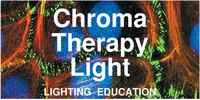Jet Lag - Learning Objectives
What causes Jet Lag?
What is sleep debt? How does light affect Jet Lag? United Airlines Boeing 747-400 SYD Li Pang
Jet Lag Therapy
"The judicious use of light (therapy and/or sunlight) at the appropriate time can quickly rebalance erratic circadian rhythm and speed recovery from jet lag. (Boulos et al., 1995; Wever, 1985; Dollins et al., 1994; Revell et al., 2006; Canton and Roberts, 2006; Paul et al., 2009). Jet lag treatment is especially effective when used in conjunction with exogenous melatonin (Arendt, 1997; Arendt et al.,1999; Revell et al., 2006). Melatonin, the body's natural endogenous sleep aid, is a tryptophan metabolite synthesized from serotonin by N-acetyl transferase (NAT) in the dark (Moore and Klein, 1974). In the presence of visible light, NAT is inhibited and melatonin production is shut down. Under normal circadian conditions, there is a small peak of melatonin production every afternoon at about 4 pm, and a much larger peak that occurs later in the evening between approximately 10 pm and 3 am. This pathway can be modified by a combination of light and exogenous melatonin treatment.
Internal melatonin can be enhanced by taking melatonin pills (0.5 mg is sufficient to fill all melatonin receptors associated with circadian imbalance) (Zhdanova et al., 1995), or by increasing its natural production by changes in the diet (Wurtman et al., 2003). Consuming foods that contain protein high in tryptophan, i.e., milk, especially together with sweets (increased insulin helps transport tryptophan across the blood-brain barrier), will naturally increase melatonin production and produce drowsiness. In contrast, high-protein food, such as meat that is rich in tyrosine and low in carbohydrates, can increase excitatory neurotransmitters and enhance wakefulness (Wurtman et al., 2003; Canton and Roberts, 2006). In summary, by judicious exposure to daylight or circadian blue light and with careful timing of meals and intake of a low dose of melatonin, it is possible to resynchronize circadian rhythms and reduce symptoms of jet lag. (Brown, 1994; Arendt, 1997; Arendt et al., 1999; Eastman et al., 2005; Roberts, 2001b; Revell et al., 2006; Wurtman et al., 2003). " [1] |
Sleep Foundation"...Try to get outside in the sunlight whenever possible. Daylight is a powerful stimulant for regulating the biological clock. (Staying indoors worsens jet lag.)..."
TitleText
Footnotes
1. Circadian Rhythm and Human Health Joan E. Roberts http://photobiology.info/Roberts-CR.html
Photo Credits
https://commons.wikimedia.org/wiki/File:United_Airlines_Boeing_747-400_SYD_Li_Pang.jpg
|
- Home
-
- CHROMA Topics
- Color Spectrum - Light is Energy
- Color in Light
- Color in Nature
- Color in Paint
- Why does paint fade?
- Color Names & Meanings
- Color Phenomena
- Color Perception is Individual
- Color In Fashion
- Color for your home
- Color in Space
- Color Blindness
- Color Blind Interview
- Synesthesia
- Synesthete Deborah Borrowdale-Cox
- Synesthete Stephen Orr, BH&G Editor
-
- Circadian & THERAPY Topics
- Circadian Explained
- Circadian Ganglion Cells
- Circadian Melatonin
- Circadian Animals
- Circadian Research
- Autism & Lighting for the Spectrum
- Blue Light Dimming Apps
- Red Night Lights
- Vitamin D & Light
- SAD - Seasonal Affective Disorder
- Alzheimers and Light Therapy
- Photosensitivity - Light Sensitive Drugs
- Red Light Therapy
- Sleep & Lighting
- Dreams and Second Sleep
- NASA - Lighting in Space & Undersea
- Jet Lag
- Sunglasses
- Chakras
- Crystals, Minerals, & Gemstones
-
- LIGHTing Design Topics
- UV Germicidal Disinfection Light
- LED Lighting Facts Card
- CRI - Color Rendering Index
- LED TM-30
- LED Kelvin Color
- LED LPW
- LED Flicker
- LED Glare
- OLED - Organic LED
- Human Centric Lighting
- Lighting with Daylighting
- Lighting for Healthy Buildings & Zero Net Energy
- Lighting for Healthcare
- Lighting for Horticulture
- Lighting for Hospitality & LED Retrofits
- Lighting for Museums
- Lighting for Seniors & Low Vision
- Lighting Design Tips & Codes
- Parking Lot Lighting
- Solar Lighting for Humanity & World Health
- Davis Insectary Garden
- Santa Barbara Mesa Insectary Garden
- Home
-
- CHROMA Topics
- Color Spectrum - Light is Energy
- Color in Light
- Color in Nature
- Color in Paint
- Why does paint fade?
- Color Names & Meanings
- Color Phenomena
- Color Perception is Individual
- Color In Fashion
- Color for your home
- Color in Space
- Color Blindness
- Color Blind Interview
- Synesthesia
- Synesthete Deborah Borrowdale-Cox
- Synesthete Stephen Orr, BH&G Editor
-
- Circadian & THERAPY Topics
- Circadian Explained
- Circadian Ganglion Cells
- Circadian Melatonin
- Circadian Animals
- Circadian Research
- Autism & Lighting for the Spectrum
- Blue Light Dimming Apps
- Red Night Lights
- Vitamin D & Light
- SAD - Seasonal Affective Disorder
- Alzheimers and Light Therapy
- Photosensitivity - Light Sensitive Drugs
- Red Light Therapy
- Sleep & Lighting
- Dreams and Second Sleep
- NASA - Lighting in Space & Undersea
- Jet Lag
- Sunglasses
- Chakras
- Crystals, Minerals, & Gemstones
-
- LIGHTing Design Topics
- UV Germicidal Disinfection Light
- LED Lighting Facts Card
- CRI - Color Rendering Index
- LED TM-30
- LED Kelvin Color
- LED LPW
- LED Flicker
- LED Glare
- OLED - Organic LED
- Human Centric Lighting
- Lighting with Daylighting
- Lighting for Healthy Buildings & Zero Net Energy
- Lighting for Healthcare
- Lighting for Horticulture
- Lighting for Hospitality & LED Retrofits
- Lighting for Museums
- Lighting for Seniors & Low Vision
- Lighting Design Tips & Codes
- Parking Lot Lighting
- Solar Lighting for Humanity & World Health
- Davis Insectary Garden
- Santa Barbara Mesa Insectary Garden








